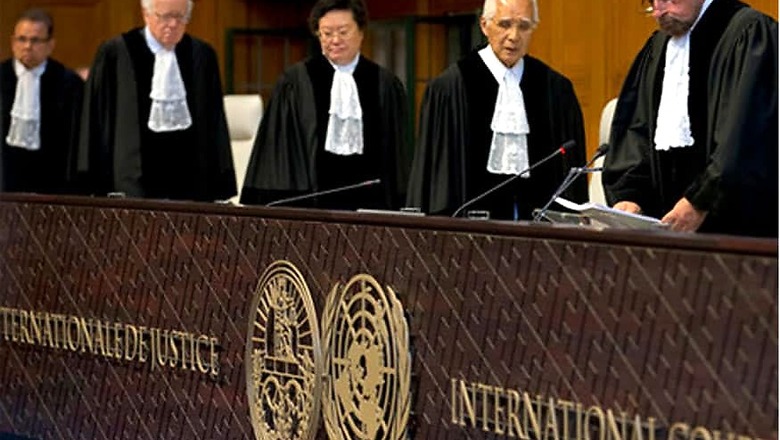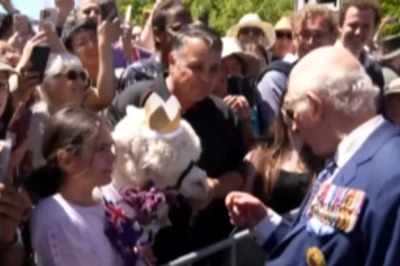
views
New Delhi/Washington: The UN General Assembly and the Security Council will meet on Monday for a new round of voting for the last seat at the International Court of Justice as the battle between India's nominee Dalveer Bhandari and Britain's Christopher Greenwood remained deadlocked.
Bhandari and Greenwood, who are seeking re-election at the Hague-based ICJ, are locked in a major battle as 11 rounds of elections held in both the UNGA and UNSC have failed to yield results.
Under the election procedures, the balloting would be held simultaneously by the Assembly and the Council.
In the successive rounds of elections spread over two days in the last two weeks, Bhandari, 70, enjoyed nearly two-third majority in the 193-member Assembly.
Greenwood, 62, received nine votes as against five by Bhandari in the Security Council. As per ICJ rules, the candidates need to gain majority in both the General assembly and Security Council to be declared elected.
A day before the election, PTI quoted diplomatic sources as saying that the UK is trying to "misuse" its UN Security Council membership by pushing for a joint conference mechanism, which was last used 96 years ago and against which there exists an unequivocal legal opinion.
The "dirty politics" being played by India's former colonial ruler, as one UN insider put it, has sent a sense of "uneasiness" among other members of the powerful UN Security Council, many of whom are aware of the long-term implications of a move to ignore the voice of the majority of the United Nations General Assembly.
In all previous incidents, the candidate getting majority in the General Assembly has eventually been elected a judge of the ICJ.
Observing that there is a deadlock situation on the ICJ election, Britain is learnt to have proposed that voting in the Security Council be stopped after first round tomorrow and they go for joint conference mechanism. It is understood that this was opposed by some members of the Security Council.
However, the British diplomats on Friday appeared confident to push its agenda through on Monday. Britain needs nine votes for the voting be stopped. Their calculation is based on the fact that in multiple rounds of the elections in UNSC, Britain has been getting nine votes for its candidate. But it is yet to be seen if the same countries support such an undemocratic move to stop voting.
The British proposal is against all legal advices, which basically says that this option has never been used in the entire history of seven decades of the ICJ, the sources said.
The only time it was used was prior to the establishment of the UN in 1921, when Deputy Judges for the Permanent Court of International Justice were selected, they said.
A point in this regard was made by Syed Akbaruddin, Permanent Representative of India to the United Nations, at the ICJ reception at the UN headquarters.
He had strongly opposed the joint conference mechanism. "Those who talk of bringing the UN and updating it to the 21st Century world cannot look back to the toolkit of 100 years ago and try to take out a tool which has never been used in the history of the UN and perhaps for valid reasons," he had told the diplomats from more than 160 countries.
"Because it opens a can of worms. We will forget about the electoral process and go after a can of worms? You are diplomats, you are sagacious people. Diplomacy is the solution. Voting is the way that diplomats resolve their differences, rather than through convoluted, cabalistic solutions of a bygone era," Akbaruddin had said.
On Monday, the election would be presided over by the General Assembly President Miroslav Lajcak, his spokesperson Brendan Varma said at a news conference at the UN headquarters in New York.
The ICJ has a bench of 15 judges, five of whom are elected every three years for a nine-year term, elections for which are held separately but simultaneously in the United Nations General Assembly and Security Council in New York.
Last week, four of the six candidates in the fray were elected as they got absolute majority in both the General Assembly and the Security Council.
They are Ronny Abraham of France, Antnio Augusto Canado Trindade of Brazil and Abdulqawi Ahmed Yusuf of Somalia and Nawaf Salam of Lebanon.
(With PTI inputs)




















Comments
0 comment